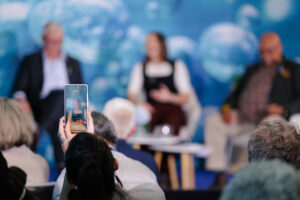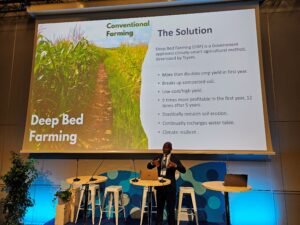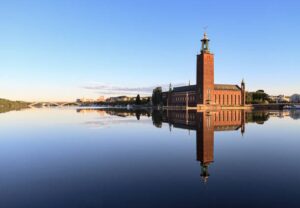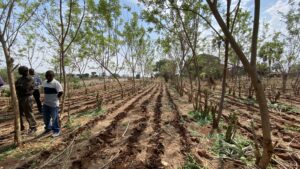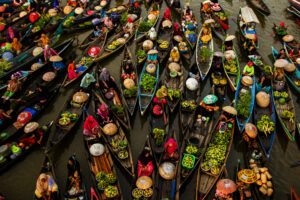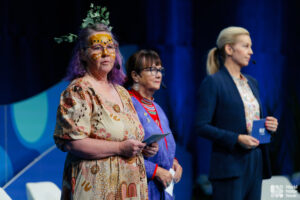Reflections from the World Water Week seminar “Energy and water – a producer’s perspective”
During the 2014 World Water Week in Stockholm, the “energy and water” theme was addressed with an overall “systems view”, how we develop and manage energy and water resources for the good of society and ecosystems – at local, national, regional and global levels. Additional views were added to the theme at the seminar “Energy and water – a producer’s perspective”, where – amongst other convenors – the majority of the largest power producers in Sweden presented some perspectives on energy and water, highlighting societal opportunities and perceived challenges, as well as cross-cutting issues.
After introductions from Andreas Lindström (SIWI) and moderator Jakob Granit (SEI), an overview highlighting linkages between energy generation – water resources and the environment, was given by Gustaf Olsson (Lund University). Jens Bjöörn (Fortum) then gave additional perspectives on energy generation and perceived conflicts, and how hydropower is key in the transformation of the Swedish energy system. Iris Cheng (Greenpeace) gave a global overview of coal – water conflicts, about water scarcity and how there is a severe mismatch between coal and water resources in the world.
Johan Thielman (E.ON) spoke about target conflicts and political will and how priorities can be aligned. He was followed by Helena Leander (The green party) and Sofia Arkelsten (The moderate party) who gave their views on energy politics – understanding decision-making affecting energy planning and choices. Christer Ljunggren (Vattenfall) spoke about the role of water in todays and tomorrows sustainable and competitive energy systems. Tobias Persson (Swedish Energy Agency) talked about aspects of a solar economy, the importance of – and how an EU integrated electricity market requires corresponding harmonization of policy measures.
Considering the debate around hydropower and its sustainability that has followed the Swedish Ministry Inquiry on Water Activities and its findings, it was only natural that hydropower and aspects around it would be in the producer’s spotlight during the seminar. Hydropower is undoubtedly a renewable as well as major and very important source of energy in Sweden, a typical year roughly half of the electricity generated stems from hydropower. The power production from hydro does have impacts on freshwater ecosystems though, and a large part of Swedish rivers are today altered because of hydropower plants and dams.
The recently launched strategy for workarounds in hydropower (Strategi för åtgärder i vattenkraften) by the Swedish Energy Agency and the Swedish Agency for marine and water management, gives recommendations for balancing the environmental mitigation measures vs the impact those would have on the production in the overall Swedish energy system. The strategy sets a limit towards such measures at 2,3% (1,5TWh) of the current yearly hydropower production. Given the expected increase in precipitation patterns going forward, as well as opportunities for increasing production through efficiency measures, environmental mitigation measures can in all likelihood quite easily be set off. The remaining question about who will pay for this going forward is another matter of perspective.
Read more about the seminar and find resources in the World Water Week Online Programme.

